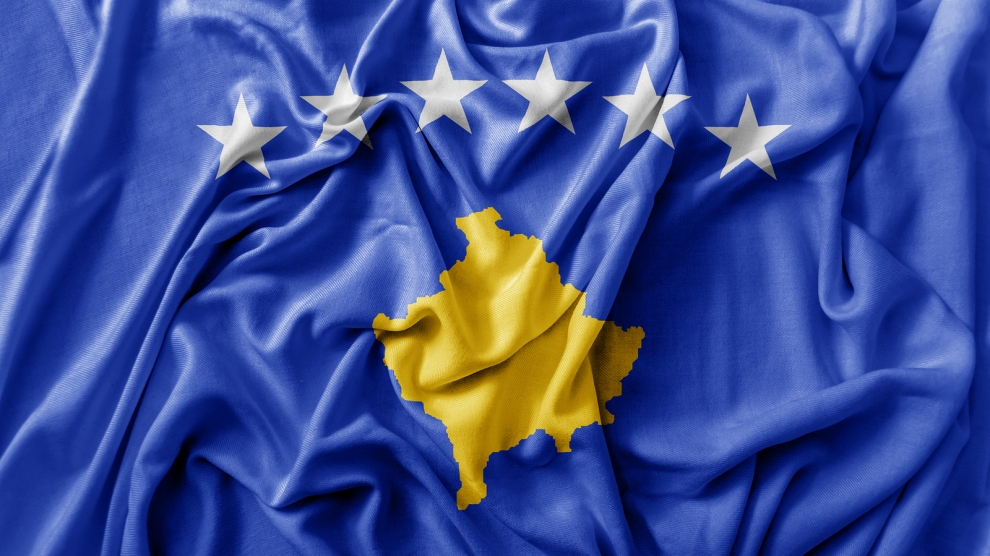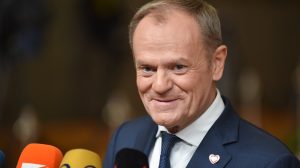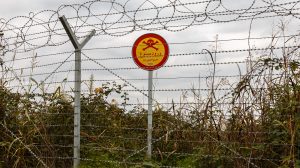Israel’s decision to establish diplomatic relations with Kosovo has once again put the spotlight on the five EU countries which refuse to recognise the former province of Serbia as an independent state. We explain the reasons behind their refusal.
The Austrian MEP Lukas Mandl responded this week to the news that Israel would recognise Kosovo as an independent country by saying that it was a message to the five EU countries which still haven’t done so.
“The State of Israel will recognise the Republic of Kosovo, which is the youngest state of Europe. Since I feel friendship between Austria, Israel and Kosovo this step means a lot to me. It is also a clear signal for those EU member states which have not yet recognised Kosovo,” Mandl wrote on his Twitter account.
- For Kosovo, Israeli recognition trumps EU concerns over Jerusalem embassy
- Kosovo and Serbia’s underwhelming agreement
- Is Dua Lipa an Albanian nationalist? Probably not
According to Meliza Haradinaj-Stublla, Kosovo’s acting foreign minister, Israel brings to 117 the number of countries which currently recognise the young state, which declared independence from Serbia in 2008, nine years after NATO conducted a 78-day airstrike campaign to halt the ethnic cleansing of Kosovo’s majority Albanian population.
Most western nations have since recognised Kosovo’s independence (many, such as the US, Germany, France and the UK, did so immediately), but Serbia and its allies Russia and China (and their allies in turn) refuse to do so.
Then there are the five European Union countries that do not recognise Kosovo: Cyprus, Greece, Romania, Slovakia, Spain.
Why? None are Serb (or Russian or Chinese) allies, and Romania even allowed NATO to use its airspace during the 1999 bombing campaign (even though Romania was not at the time a NATO member).
For all five, the question of Kosovo’s independence is not about Kosovo per se: it is a question of local politics.
The Catalonia question
Perhaps the best-known motive for non-recognition is Spain’s, which does not want to offer any form of succour to the independence movement in its own province of Catalonia.
In 2018, Spain’s then prime minister Mariano Rajoy went so far as to refuse to participate in an EU-Western Balkans Summit that took place in the Bulgarian capital Sofia, claiming that Kosovo’s presence at the summit was unacceptable.
The summit took place less than a year after Catalonia held an independence referendum that Madrid attempted to prevent. Catalonia’s subsequent unilaterally declaration of independence was ignored by the wider international community, and many of its leaders imprisoned.
While officially Spain’s stance remains the same, it may be softening. It suggested last year that it would have no problem in recognising Kosovo if a deal was struck with Serbia, and it has also made clear that it will recognise an independent Scotland – and not veto any EU membership application that might follow – if the UK government approves a new referendum.
Spain has also said that it will honour a football fixture in Kosovo later this year: the two countries have been drawn together in the same qualifying group for the 2022 World Cup. While European football’s governing body deliberately keeps some countries apart when making its draws (such as Gibraltar and Spain, Armenia and Azerbaijan, Ukraine and Russia, as well as Kosovo and Serbia, Bosnia-Herzegovina, and Russia), Spain did not request it be exempted from playing Kosovo.
Cyprus & Greece
The objection of Cyprus to Kosovo’s independence is based on similar grounds, namely Turkey’s continued occupation of the northern third of the island: the de facto Turkish Republic of Northern Cyprus (TRNC), created after a coup in 1974 that attempted to annex the island to Greece.
While there has been some limited engagement between Nicosia and Prishtina in recent years (and again, football diplomacy has played a part: the two countries have met several times), Cyprus remains firmly against recognising Kosovo until an agreement is reached between Prishtina and Belgrade and endorsed by the United Nations.
Greece’s stance over Kosovo is one of support for Cyprus. Athens runs an unofficial embassy, known as the Greek Liaison Office, in Prishtina, and Greek officials have on numerous occasions said that resolution of the Kosovo-Serbia dispute lies in European Union integration for both: something it says it supports.
Slovakia
Less clear, and arguably far harder to justify, are the objections to Kosovan independence of Slovakia and Romania, although the presence of both countries of large Hungarian ethnic minorities offers a few clues, according to Milan Nič, the head of the Robert Bosch Center for Central and Eastern Europe, Russia, and Central Asia.
In a 2018 paper written for a report published by the Kosovo Foundation for Open Society (KFOS) looking at the relationship between EU states and Kosovo, Nič wrote:
“The Slovak perspective is a deeper historical sensitivity to issues of borders and secession of ethnic minorities. This goes all the way back to the break-up of Austro-Hungarian Monarchy in 1918-20 period, when Slovakia for the first time emerged on a map with territory that included ethnic Hungarian regions in the south of the country.
“During the World War II, Hitler’s Nazi Germany rewarded its ally Hungary with restoration of old borders, which was annulled by peace settlement after 1945. Even though four decades of communism stabilised the border of southern Slovakia on the Danube River, the old sensitivities were back in the 1990s, fuelled by political parties in Budapest demanding reunification of Hungarians in the Carpathian Basin across the borders. This deep uncertainty about borders and ethnic minorities was one of the driving factors of Slovak diplomacy a keen interest in developments in the Western Balkans in the 1990s.”
However, as Nič also explains, although Slovakia has not recognised Kosovo, the past decade has shown that Bratislava has been willing to engage with it. Slovakia maintains an official presence in Prishtina and there have been frequent political contacts between Kosovo and Slovak officials.
Furthermore, in April 2020, a former Slovak foreign minister, Miroslav Lajčák, was appointed by the EU Council as its special representative for Belgrade-Prishtina Dialogue and other Western Balkan regional issues.
His mandate includes the tasks of achieving comprehensive normalisation of the relations between Serbia and Kosovo, improve good neighbourly relations and reconciliation between partners in the Western Balkans, helping them overcome the legacy of the past, and contribute to the consistency and effectiveness of EU action in the Western Balkans.
Romania
The situation is similar for Romania.
The country’s Hungarian ethnic minority has long called for autonomy of the Székely Land, an area situated in eastern Transylvania and populated predominantly by Hungarians. Autonomy has always been rejected by all political parties in Romania (even the most liberal Romanian politicians have a habit of foaming at the mouth at the very utterance of the word autonomy) except the Democratic Union of Hungarians in Romania (UDMR), which ironically has been part of the country’s ruling coalition several times. Indeed, it is an integral part of the country’s current government.
But as Paul Ivan, a foreign policy advisor at Renew Europe points out in the same KFOS report, there is also another issue in play for Romania: the breakaway republic of Transnistria in Moldova.
“Rejecting the recognition of collective rights for national minorities, the Romanian authorities maintained that Kosovo’s unilateral declaration of independence was contrary to international law and that it set a dangerous precedent that could be used by other separatist movements, such as the pro- Russian separatists from Transnistria,” he wrote.
Ivan says however that despite its continuing policy not to recognise Kosovo, Romania has been pragmatic and has worked with other EU member states on practical issues related to Kosovo’s development and EU integration. Romania has also been one of the main contributors to the international missions in Kosovo, such as UNMIK, EULEX and KFOR.
No recognition in sight
More than a decade since Kosovo declared independence, the stance of the EU refuseniks is unlikely to change without a formal deal between Belgrade and Prishtina. That, despite a deal agreed at the White House last year (hailed as ground-breaking by former US President Donald Trump but underwhelming by just about everyone else), looks as far away as ever.
An upcoming parliamentary election in Kosovo – scheduled for February 14 – is unlikely to change anything.
If the nationalist Vetëvendosje party – which wants to amend Kosovo’s constitution to remove its third article, which forbids the unification of Kosovo with other countries – does well, the waters may be muddied even further.
Any talk of Kosovo’s unification with Albania, something which crops up every now and then, really doesn’t help.
Unlike many news and information platforms, Emerging Europe is free to read, and always will be. There is no paywall here. We are independent, not affiliated with nor representing any political party or business organisation. We want the very best for emerging Europe, nothing more, nothing less. Your support will help us continue to spread the word about this amazing region.
You can contribute here. Thank you.








[…] Source link : https://emerging-europe.com/news/the-explainer-the-eus-kosovo-refuseniks/ Author : Publish date : 2021-02-03 14:46:28 Copyright for syndicated content belongs to the linked Source. […]
[…] The explainer: The EU’s Kosovo awkward squad […]
[…] The explainer: The EU’s Kosovo awkward squad […]
[…] The explainer: The EU’s Kosovo awkward squad […]
[…] themselves are under pressure to grant independence to parts of their own lands. There’s a helpful article here by “Emerging Europe“, a community group focused on […]
[…] The EU’s Kosovo awkward squad […]
[…] The explainer: The EU’s Kosovo awkward squad […]
[…] The explainer: The EU’s Kosovo awkward squad […]
[…] The explainer: The EU’s Kosovo awkward squad […]
[…] The explainer: The EU’s Kosovo awkward squad […]
Google
Here is an excellent Blog You may Discover Intriguing that we encourage you to visit.
[…] The explainer: The EU’s Kosovo awkward squad […]
[…] Explainer: The EU’s Kosovo awkward squad […]
[…] se unirá a la UE hasta que cinco de sus 27 estados -Chipre, Grecia, Rumania, Eslovaquia y España- no reconoce su independencia de Serbia, proclamada en […]
[…] join the EU as long as five of its 27 states — Cyprus, Greece, Romania, Slovakia and Spain — don’t recognise its independence from Serbia, proclaimed in […]
[…] a part of the EU so long as 5 of its 27 states — Cyprus, Greece, Romania, Slovakia and Spain — don’t recognise its independence from Serbia, proclaimed in […]
[…] join the EU as long as five of its 27 states — Cyprus, Greece, Romania, Slovakia and Spain — don’t recognise its independence from Serbia, proclaimed in […]
[…] join the EU as long as five of its 27 states — Cyprus, Greece, Romania, Slovakia and Spain — don’t recognise its independence from Serbia, proclaimed in […]
[…] se unirá a la UE mientras cinco de sus 27 estados (Chipre, Grecia, Rumania, Eslovaquia y España) no reconoce su independencia de Serbia, proclamada en […]
[…] join the EU as long as five of its 27 states — Cyprus, Greece, Romania, Slovakia and Spain — don’t recognise its independence from Serbia, proclaimed in […]
[…] finché cinque dei suoi 27 stati – Cipro, Grecia, Romania, Slovacchia e Spagna – non riconoscerne l’indipendenza dalla Serbia, proclamato nel […]
[…] join the EU as long as five of its 27 states — Cyprus, Greece, Romania, Slovakia and Spain — don’t recognise its independence from Serbia, proclaimed in […]
[…] join the EU as long as five of its 27 states — Cyprus, Greece, Romania, Slovakia and Spain — don’t recognise its independence from Serbia, proclaimed in […]
[…] join the EU as long as five of its 27 states — Cyprus, Greece, Romania, Slovakia and Spain — don’t recognise its independence from Serbia, proclaimed in […]
[…] join the EU as long as five of its 27 states — Cyprus, Greece, Romania, Slovakia and Spain — don’t recognise its independence from Serbia, proclaimed in […]
[…] join the EU as long as five of its 27 states — Cyprus, Greece, Romania, Slovakia and Spain — don’t recognise its independence from Serbia, proclaimed in […]
[…] join the EU as long as five of its 27 states — Cyprus, Greece, Romania, Slovakia and Spain — don’t recognise its independence from Serbia, proclaimed in […]
[…] join the EU as long as five of its 27 states — Cyprus, Greece, Romania, Slovakia and Spain — don’t recognise its independence from Serbia, proclaimed in […]
[…] stumbling block is that most EU nations are opposed to further EU enlargement in the Balkans, and five EU members do not recognise Kosovo: Spain, Greece, Cyprus, Romania, and Slovakia. The EU’s ability to act as a credible mediator […]
[…] stumbling block is that most EU nations are opposed to further EU enlargement in the Balkans, and five EU members do not recognise Kosovo: Spain, Greece, Cyprus, Romania, and Slovakia. The EU’s ability to act as a credible mediator […]
[…] stumbling block is that most EU nations are opposed to further EU enlargement in the Balkans, and five EU members do not recognise Kosovo: Spain, Greece, Cyprus, Romania, and Slovakia. The EU’s ability to act as a credible mediator […]
[…] stumbling block is that most EU nations are opposed to further EU enlargement in the Balkans, and five EU members do not recognise Kosovo: Spain, Greece, Cyprus, Romania, and Slovakia. The EU’s ability to act as a credible mediator […]
[…] stumbling block is that most EU nations are opposed to further EU enlargement in the Balkans, and five EU members do not recognise Kosovo: Spain, Greece, Cyprus, Romania, and Slovakia. The EU’s ability to act as a credible mediator […]
[…] stumbling block is that most EU nations are opposed to further EU enlargement in the Balkans, and five EU members do not recognise Kosovo: Spain, Greece, Cyprus, Romania, and Slovakia. The EU’s ability to act as a credible mediator […]
[…] stumbling block is that most EU nations are opposed to further EU enlargement in the Balkans, and five EU members do not recognise Kosovo: Spain, Greece, Cyprus, Romania, and Slovakia. The EU’s ability to act as a credible mediator […]
[…] stumbling block is that most EU nations are opposed to further EU enlargement in the Balkans, and five EU members do not recognise Kosovo: Spain, Greece, Cyprus, Romania, and Slovakia. The EU’s ability to act as a credible mediator […]
[…] block is that most EU nations are opposed to further more EU enlargement in the Balkans, and five EU associates do not recognise Kosovo: Spain, Greece, Cyprus, Romania, and Slovakia. The EU’s skill to act as a credible mediator […]
[…] земаља ЕУ противи даљој ЕУ Експанзија на БалкануИ Пет чланица ЕУ не признаје Косово: Шпанија, Грчка, Кипар, Румунија и Словачка. Тхе […]
[…] stumbling block is that most EU nations are opposed to further EU enlargement in the Balkans, and five EU members do not recognise Kosovo: Spain, Greece, Cyprus, Romania, and Slovakia. The EU’s ability to act as a credible mediator […]
[…] stumbling block is that most EU nations are opposed to further EU enlargement in the Balkans, and five EU members do not recognise Kosovo: Spain, Greece, Cyprus, Romania, and Slovakia. The EU’s ability to act as a credible mediator […]
[…] stumbling block is that most EU nations are opposed to further EU enlargement in the Balkans, and five EU members do not recognise Kosovo: Spain, Greece, Cyprus, Romania, and Slovakia. The EU’s ability to act as a credible mediator […]
[…] stumbling block is that most EU nations are opposed to further EU enlargement in the Balkans, and five EU members do not recognise Kosovo: Spain, Greece, Cyprus, Romania, and Slovakia. The EU’s ability to act as a credible mediator […]
[…] stumbling block is that most EU nations are opposed to further EU enlargement in the Balkans, and five EU members do not recognise Kosovo: Spain, Greece, Cyprus, Romania, and […]
[…] difficulty is that five EU countries — Cyprus, Greece, Romania, Slovakia and Spain — have never recognised Kosovo’s independence, for reasons connected to territorial and ethnic disputes in their own […]
[…] quốc gia EU – Síp, Hy Lạp, Romania, Slovakia và Tây Ban Nha – chưa bao giờ công nhận nền độc lập của Kosovovì những lý do liên quan đến tranh chấp lãnh thổ và sắc tộc ở quốc gia của […]
[…] difficulty is that five EU countries — Cyprus, Greece, Romania, Slovakia and Spain — have never recognised Kosovo’s independence, for reasons connected to territorial and ethnic disputes in their own […]
[…] – Cipro, Grecia, Romania, Slovacchia e Spagna – non l’hanno mai fatto riconosciuto l’indipendenza del Kosovoper motivi legati a dispute territoriali ed etniche nei propri […]
[…] difficulty is that five EU countries — Cyprus, Greece, Romania, Slovakia and Spain — have never recognised Kosovo’s independence, for reasons connected to territorial and ethnic disputes in their own […]
[…] difficulty is that five EU countries — Cyprus, Greece, Romania, Slovakia and Spain — have never recognised Kosovo’s independence, for reasons connected to territorial and ethnic disputes in their own […]
[…] difficulty is that five EU countries — Cyprus, Greece, Romania, Slovakia and Spain — have never recognised Kosovo’s independence, for reasons connected to territorial and ethnic disputes in their own […]
[…] difficulty is that five EU countries — Cyprus, Greece, Romania, Slovakia and Spain — have never recognised Kosovo’s independence, for reasons connected to territorial and ethnic disputes in their own […]
[…] difficulty is that five EU countries — Cyprus, Greece, Romania, Slovakia and Spain — have never recognised Kosovo’s independence, for reasons connected to territorial and ethnic disputes in their own […]
[…] Historians have labelled Kosovo as “the political, religious, and cultural core of medieval Serbia”. Serbs have “lived in Kosovo since the 11th century. From 1200 to 1455, Kosovo was part of the Serbian Kingdom“. Since 1999, during Balkan and Kosovo Wars, hundreds of historic Serbian Orthodox churches and monasteries in Kosovo were destroyed. Many of those devout structures date as far back as the 12th, 13th, and 14th centuries. As a religious country, this destruction is a sore subject for Serbs, adding to the tension between Serbia and Kosovo. […]
[…] Explainer: The EU’s Kosovo awkward squad […]
[…] Explainer: The EU’s Kosovo awkward squad […]
[…] Five EU countries—Spain, Greece, Cyprus, Slovakia, and Romania—do not recognise Kosovo. France and the Netherlands expressed concerns about migration. […]
[…] Kosova stať sa dobre uznávaným a dobre fungujúcim štátom. V Európskej únii je päť členov Neuznať KosovoTýmito krajinami sú Rumunsko, Slovensko, Grécko, Cyprus a Španielsko. Posledné dve menované […]
[…] to integrating the region as well as its failure to meaningfully address five of its member states non-recognition of Kosovo—a severe hit to its credibility with […]
[…] to integrating the region as well as its failure to meaningfully address five of its member states non-recognition of Kosovo—a severe hit to its credibility with […]
[…] to integrating the region as well as its failure to meaningfully address five of its member states non-recognition of Kosovo–a severe hit to its credibility with […]
[…] au Kosovo, dont Belgrade refuse toujours de reconnaître l’indépendance (ainsi que cinq membres de l’UE d’ailleurs), la France et l’Allemagne ont récemment proposé un plan pour résoudre ce […]
[…] Explainer: The EU’s Kosovo awkward squad […]
[…] between member states and the Western Balkans, while the non-recognition of Kosovo by five EU member states damaged accession hopes. And a change in the enlargement […]
[…] relations between Member States and the Western Balkans, while the non-recognition of Kosovo by five EU member states hopes of membership were compromised. And one change in enlargement methodology below French […]
[…] integration as well as its inability to meaningfully address five of its member states non-recognition of Kosovo, which is a serious blow to its credibility with […]
[…] between member states and the Western Balkans, while the non-recognition of Kosovo by five EU member states damaged accession hopes. And a change in the enlargement […]
[…] key role in realising this, it should cease acting as a status-neutral actor, despite the stance of non-recogniser states towards Kosovo. In doing so, the EU could create the circumstances for Kosovo and Serbia to […]
[…] key role in realising this, it should cease acting as a status-neutral actor, despite the stance of non-recogniser states towards Kosovo. In doing so, the EU could create the circumstances for Kosovo and Serbia to […]
[…] relations between member states and the Western Balkans, while the non-recognition of Kosovo by five EU member states damaged accession hopes. And a change in the enlargement methodology under French pressure in 2018, […]
[…] relations between member states and the Western Balkans, while the non-recognition of Kosovo by five EU member states damaged accession hopes. And a change in the enlargement methodology under French pressure in 2018, […]
[…] As an associate NATO member, Kosovo now enjoys new rights such as presenting resolutions to the NATO parliamentary assembly, but it’s not enough. Kosovo needs full NATO membership. It aims to become part of NATO’s Partnership for Peace Programme, an initiative which enhances trust between NATO member states and other states in Europe. To join NATO, Kosovo needs the approval of all 32 members, only 28 of whom recognise Kosovo as an independent country. Spain, Greece, Romania, and Slovakia do not. […]